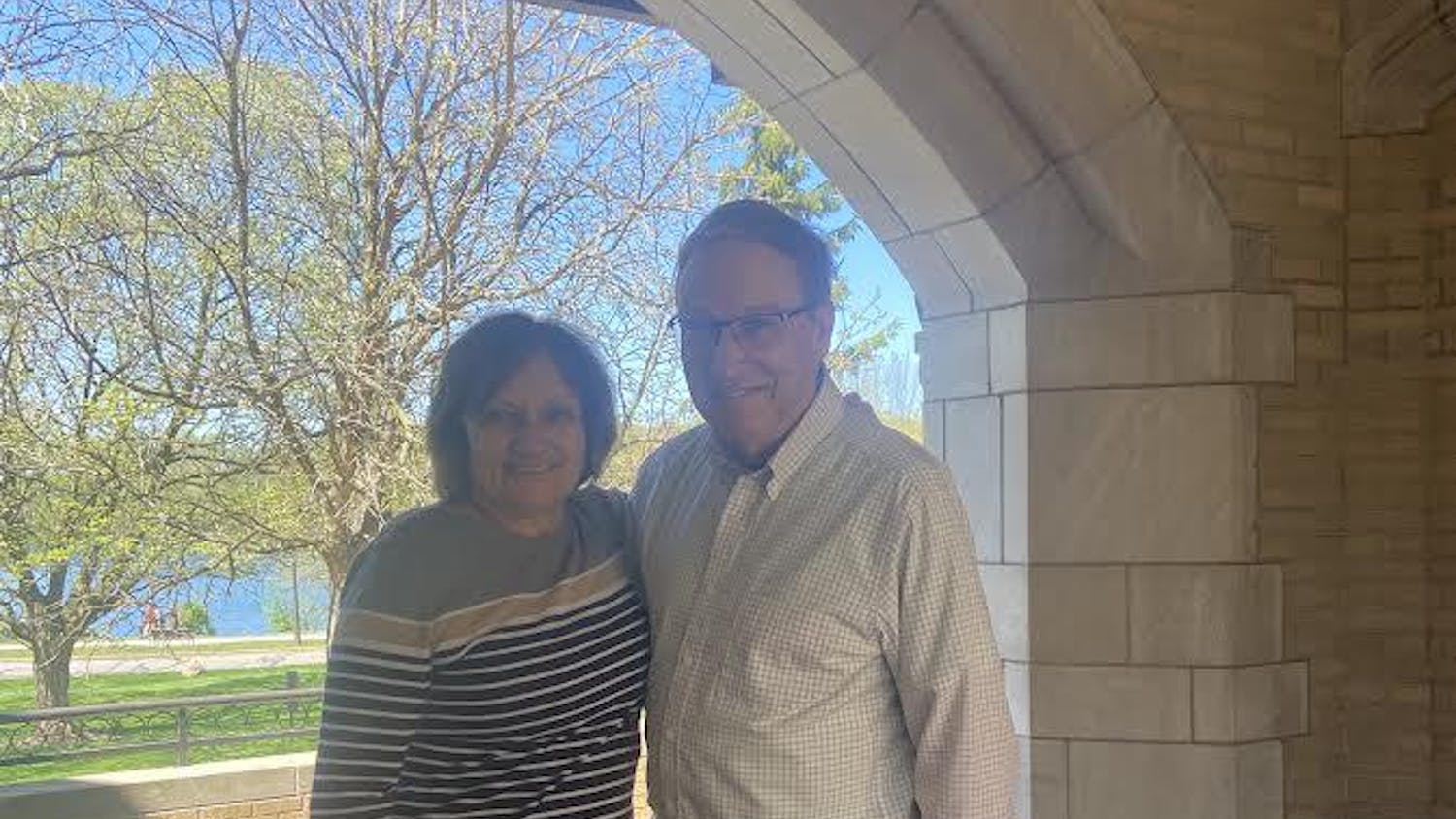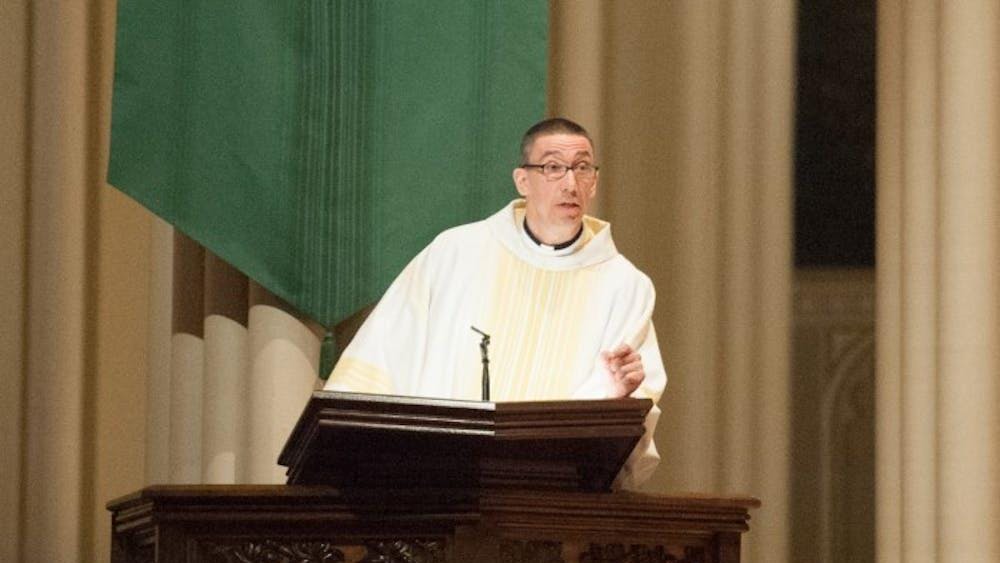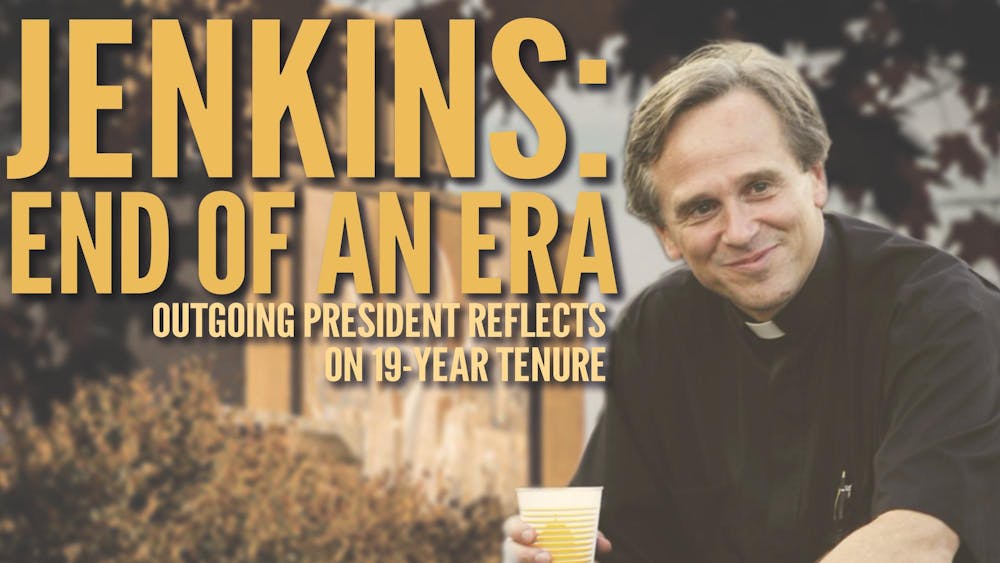Notre Dame Security Police (NDSP) has the same powers that a public police force does. Within its jurisdiction, NDSP officers can carry weapons, investigate crimes and make arrests that can lead to criminal charges.
But when somebody gets arrested by the South Bend Police Department (SBPD), files a complaint with the agency or is the victim of a crime to which it responds, that information becomes a public record under Indiana’s Access to Public Records Act (APRA).
For NDSP, it’s a little more complicated.
The distinction between a police force like SBPD and one like NDSP hinges on the legal distinction between private and public agencies.
Under APRA, “public agencies” — like local police departments — are required to release certain records by law. However, private university police departments like NDSP have long been considered private agencies under state law, and therefore not subject to APRA.
The legal status of NDSP has been the subject of intense legal scrutiny in the past two years.
ESPN filed a lawsuit against the University in January 2015, after Notre Dame refused to release incident reports related to student athletes on two separate occasions.
Last month, the Indiana Supreme Court overturned a lower court decision, rulingin favor of Notre Dame that NDSP is not a public agency under the law.
While the ESPN case made its way through the legal system last year, the Indiana State Legislature passed HB 1022, which would have required private university police departments to disclose records only in situations where someone was arrested or incarcerated, shielding them specifically from the rest of APRA. It wasvetoed by then-Governor Mike Pence in March.
The state legislature, which passed HB 1022 with overwhelming support, will have the opportunity to override the veto when the new legislative session begins in January.
But, just one day after the final ruling in the ESPN lawsuit, the South Bend Tribunereported another law — HB 1019 — was passed last year that contained language such that it inadvertently changed the state’s definition of a “public agency” to specifically include university police departments.
Effective July 1 of this year, the law changed the term’s definition, which now reads in theIndiana State Code as the following:
“Public agency", except as provided in section 2.1 of this chapter, means the following: ... (11) A private university police department. The term does not include the governing board of a private university or any other department, division, board, entity, or office of a private university.”
On Nov. 18, The Observer submitted records requests for three case files to NDSP. Capt. Rick Miller said NDSP could not fulfill the request and recommended the requests be directed to the University’s Office of General Counsel.
The Observer submitted the records requests to General Counsel, and agreed to a meeting to discuss the matter with Brian Guarraci, assistant general counsel, whose primary areas of practice include “litigation and risk management, student affairs, campus safety and security, the Clery Act and advising University departments on statutory, regulatory and policy matters,” according to the Office of General Counsel’s website.
Within the 24 hours required for a response under state law, University spokesperson Dennis Brown denied all three records requests.
“The University of Notre Dame, including its Notre Dame Security Police Department, is not a public agency of the government and thus is not subject to requests for public records under Indiana’s Access to Public Records Act (APRA),” Brown said in an email.
Two days later, Brown informed The Observer in an email that its meeting with the Office of General Counsel had been cancelled: “because we have nothing to add beyond the response I sent to you on Saturday, there is no need for a meeting.”
When asked why the University considers NDSP not a public agency given the definition of public agency in the 2016 version of the Indiana Code, Brown said the change was erroneous and that a correction to the law had already been drafted.
“ … Regarding the technical printing error in the last legislative session, language from HB 1022 regarding private universities was erroneously included in a conference committee report for HB 1019 (concerning public access to police recordings), and in contravention of the legislative drafting rules for the Indiana General Assembly,” Brown said.
“This resulted in two conflicting versions of Ind. Code 5-14-3-2. As is common after legislative sessions when technical corrections are identified by Indiana’s Legislative Services Agency (“LSA”), this technical error has been identified by LSA as one of several technical errors requiring correction through a Technical Corrections Bill. In September 2016, the Technical Corrections Bill prepared by LSA specifically correcting this erroneous inclusion was approved for forwarding to the Legislature by a 12-0 vote of the Indiana Code Revision Commission ...
“ … The Technical Corrections Bill will proceed to the General Assembly after it reconvenes in January 2017. Once enacted, the corrections will be retroactive as of July 1, 2016.”
Until the corrections bill passes, however, it seems that NDSP is subject to APRA as a public agency under state law.
Because the University has chosen to deny records requests, organizations and individuals seeking records would have few options for recourse except to sue for access before the state legislature passes the corrections bill.
The Observer has no plans to sue for access.
News Editor Katie Galioto contributed to this report.













